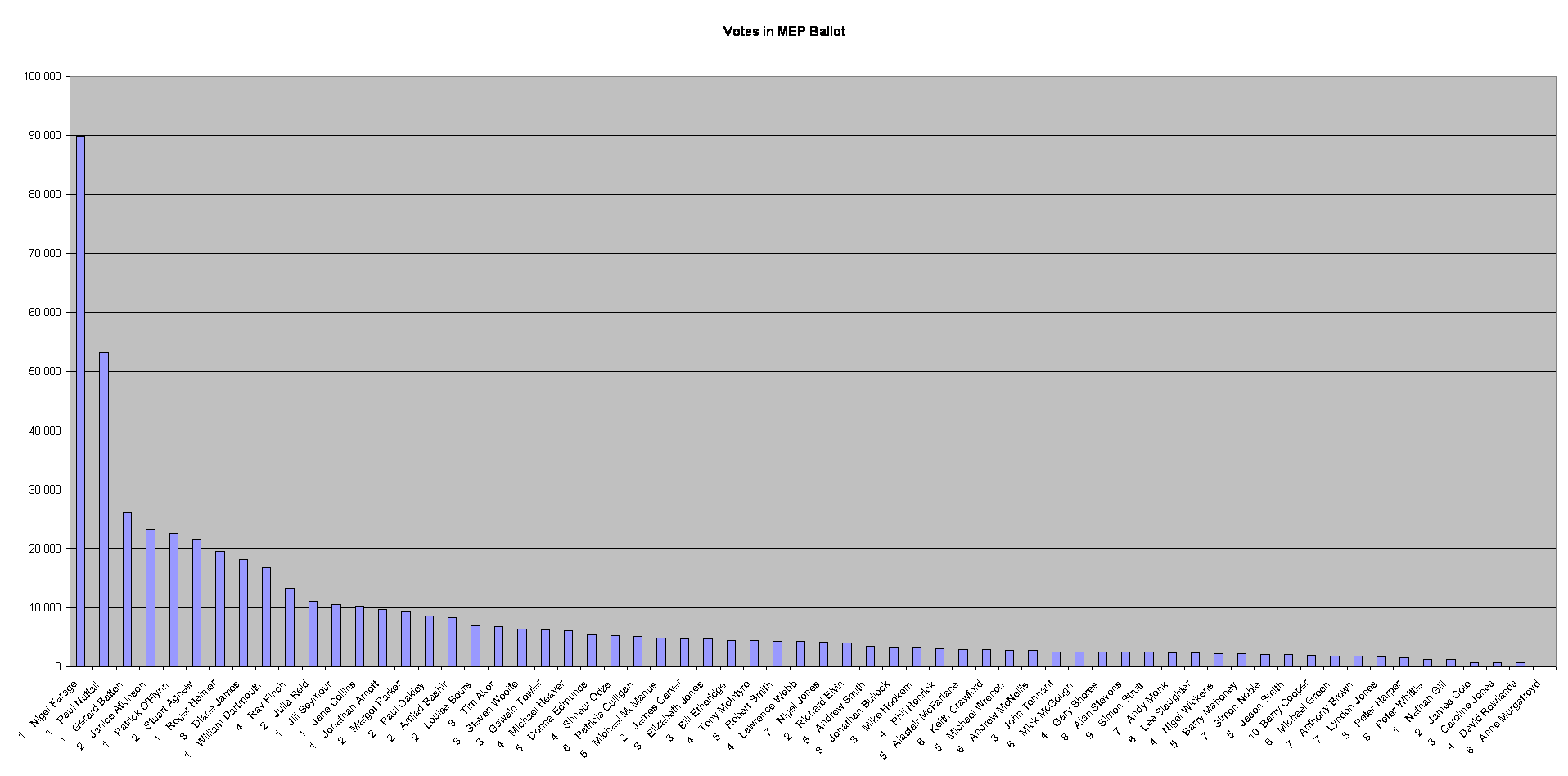This week saw the release of UKIP’s list of candidates for the 2014 European elections. For a party widely expected to top the poll next year, this is an important stage in their management of that election.
It was also an important event, because the party had made a conscious effort to change its mechanism for selecting candidates this time around. Instead of limiting votes to their region, members were allowed to vote on a national list of 78 candidates. The intention was to stop locally influential individuals having as much impact on rankings, and so reassert the party leadership’s position: several people were not reselected at this stage. It also came on the back of a series of weak selection procedures resulting in UKIP candidates or elected individuals having brief moments of fame in the media for unsavoury actions or comments. For a party that has grown rapidly, while still operating on a metaphorical shoestring, and with far-right elements still probing to see if they can use UKIP as an intermediary, this represents a considerable danger.
Members were given ten votes, with a preferential weighting (i.e. the first preference counts for more than the second, and so on), with the Electoral Reform Society collecting the results. According to the information circulated by one branch, the results then went to the party’s chairman, Steven Crowther, and then the NEC to consider “complaints, screening/vetting and ratification”.
Screening certainly took place, following Godfrey Bloom’s removal of the whip last month: when and whether he will return to the party fold is not clear, but unless one of the new batch of MEPs steps aside for him, it doesn’t look likely to be in that capacity. It’s also worth noting that Anne Murgatoyd appears on the final list, despite not being part of the original selection.
As for complaints, I’m not aware of any, but certainly the pre-selection of the 78 caused much consternation, especially since the process appeared to have been designed by key figures at very short notice and without wide consultation.
With the exception of the Northern Ireland candidate, who had already been selected unopposed in the first phase, the remaining candidates contested 64 slots. This is in itself an interesting point, given that there are 73 seats available and UKIP’s traditional approach has been to field a full slate of candidates. While they have this in England and Wales, there was only one Northern Irish candidate (for 3 seats), reflecting both the differing party systems and the continuing weakness of UKIP beyond England. Scotland will have candidates announced separately.
The chart below shows the number of votes each successful candidate received, as listed on the UKIP website:
 The numbers indicate the candidate’s place on their regional list (so Jonathan Arnott topped the North East list with just under 10,000 votes).
The numbers indicate the candidate’s place on their regional list (so Jonathan Arnott topped the North East list with just under 10,000 votes).
Several observations are worth making here.
Firstly, public profile matters. Nigel Farage’s votes far exceed those of any other candidate, with the exception of Deputy Leader, Paul Nuttall. Likewise, all the 6 current MEPs on the list are all in the top 9 spots. The profile of Express political editor Patrick O’Flynn and Eastleigh candidate Diane James also saw them do well.
Second, the parachuting of candidates has been more limited than some had thought. Patrick O’Flynn aside, conspicuously absent is Deputy Chairman, Neil Hamilton, suggesting that the ‘Kilroy’ strategy of 2004 is not to be repeated. This would make sense in the context of UKIP having already got a media profile – centred on Farage – and not wanting to provide an alternative focus for that.
Third, voting was conducted by approximately 31,000 members, according the UKIP’s Press Office, Gawain Towler. I note this solely for the reason that this was roughly the membership claimed in May, after the local elections, implying that the big growth spurt then was of a limited duration.
The final note is that this process has produced much unhappiness, both within the party and for others in the eurosceptic movement. As I discussed last week, the progressive collapse of the UKIP group in the EP has only been hastened by this process. Consider that of the original list produced for England and Wales, only 4 individuals did not get through (one of whom was the self-removing Bloom), highlighting the strong gate-keeping role that the central party has played this time.
As UKIP looks to trying to move on from being a party of protest, it has to convey its ability to exercise the powers given to it in a responsible way. Whether this new method of choosing candidates – many of whom are likely to become MEPs, and the dominant party within a increasingly consequential EP grouping – remains to be seen.
